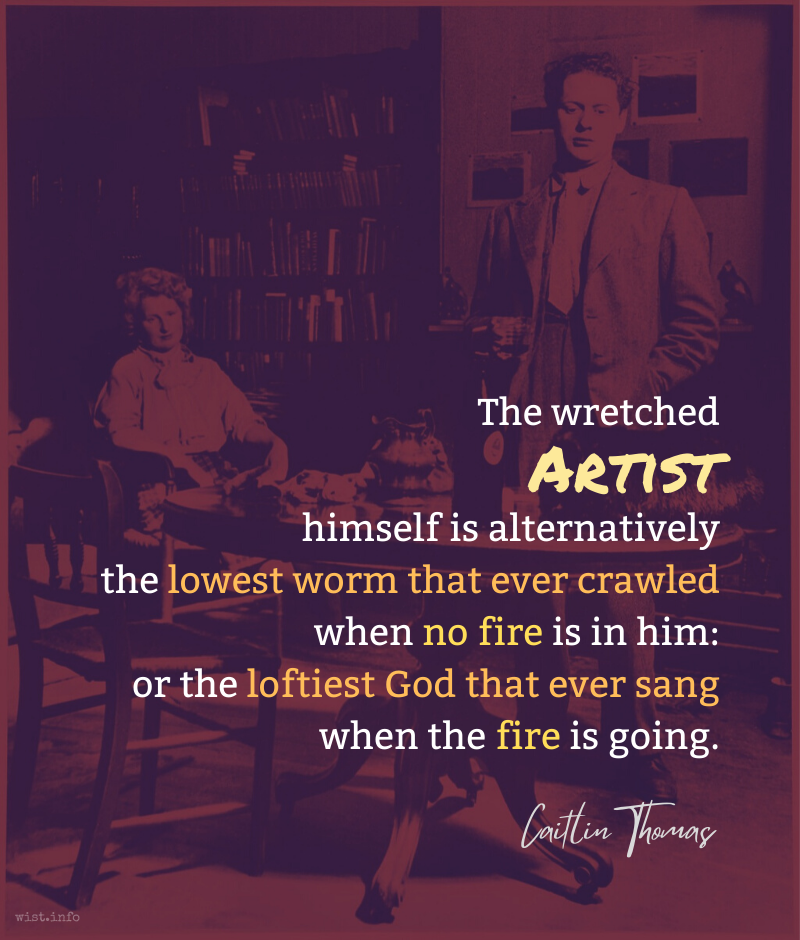Making a book is a craft, like making a clock; it needs more than native wit to become an author.
[C’est un métier que de faire un livre, comme de faire une pendule: il faut plus que de l’esprit pour être auteur.]
Jean de La Bruyère (1645-1696) French essayist, moralist
The Characters [Les Caractères], ch. 1 “Of Works of the Mind [Des Ouvrages de l’Esprit],” § 3 (1.3) (1688) [tr. Stewart (1970)]
(Source)
(Source (French)). Alternate translations:
To make a Book, is like making a Pendulum, a Man must have Experience, as well as Wit to succeed in it.
[Bullord ed. (1696)]
Tis as much a Trade to make a Book, as to make a Watch; there's something more than Wit requisite to make an Author.
[Curll ed. (1713)]
To make a Book, is no less a Trade than to make a Clock; something more than Wit is necessary to form an Author.
[Browne ed. (1752)]
To make a book is as much a trade as to make a clock; something more than intelligence is required to become an author.
[tr. Van Laun (1885)]
Quotations about:
author
Note not all quotations have been tagged, so Search may find additional quotes on this topic.
There is something laughable about the sight of authors who enjoy the rustling folds of long and involved sentences: they are trying to cover up their feet.
[Man hat Etwas zum Lachen, diese Schriftsteller zu sehen, welche die faltigen Gewänder der Periode um sich rauschen machen: sie wollen so ihre Füsse verdecken.]
Friedrich Nietzsche (1844-1900) German philosopher and poet
The Gay Science [Die fröhliche Wissenschaft], Book 4, § 282 (1882) [tr. Kaufmann (1974)]
(Source)
Also known as La Gaya Scienza, The Joyful Wisdom, or The Joyous Science.
(Source (German)). Alternate translations:
It is something laughable to see those writers who make the folding robes of their periods rustle around them: they want to cover their feet.
[tr. Common (1911)]
There is something laughable about those writers who make the folded drapery of their period rustle around them; they want to hide their feet.
[tr. Hill (2018)]
An old racetrack joke reminds you that your program contains all the winners’ names. I stare at my typewriter keys with the same thought.
Mignon McLaughlin (1913-1983) American journalist and author
The Neurotic’s Notebook, ch. 5 (1963)
(Source)
If I wanted to write, I had to be willing to develop a kind of concentration found mostly in people awaiting execution.
It seems to be a wise provision of nature that the follies of men should be short-lived; but books interfere and immortalize them. A fool, not content with having bored all those who have lived with him, insists on tormenting generations to come; he would have his folly triumph over oblivion, which should have been as welcome to him as death; he wishes posterity to be informed of his existence, and he would have it remember for ever that he was fool.
[La nature sembloit avoir sagement pourvu à ce que les sottises des hommes fussent passagères, et les livres les immortalisent. Un sot devroit être content d’avoir ennuyé tous ceux qui ont vécu avec lui : il veut encore tourmenter les races futures, il veut que sa sottise triomphe de l’oubli, dont il auroit pu jouir comme du tombeau; il veut que la postérité soit informée qu’il a vécu, et qu’elle sache à jamais qu’il a été un sot.]
Charles-Lewis de Secondat, Baron de Montesquieu (1689-1755) French political philosopher
Persian Letters [Lettres Persanes], Letter 66, Rica to *** (1721) [tr. Davidson (1891)]
(Source)
Commonly paraphrased as "An author is a fool who, not content with having bored those who have lived with him, insists on boring future generations."
(Source (French)). Alternate translations:
Nature seems wisely to have provided that the Follies of Men shou'd pass away, but Books perpetuate them. A Fool ought to be satisfy'd with having teaz'd those who liv'd at the same Time with him: but he is for going further, and is resolved to plague the Generations to come he is resolv'd to make his Impertinence triumph over Oblivion, which he might have enjoy'd as well as his Grave: he will have Posterity know that such a one liv'd, and all future Ages be inform'd that he was a Fool.
[tr. Ozell (1736 ed.), Letter 64]
Nature seems to have provided, that the follies of men should be transient, but they by writing books render them permanent. A fool ought to content himself with having wearied those who lived with him: but he is for tormenting future generations; he is desirous that his folly should triumph over oblivion, which he ought to have enjoyed as well as his grave; he is desirous that posterity should be informed that he lived, and that it should be known for ever that he was a fool.
[tr. Floyd (1762)]
Nature has wisely provided that the follies of men should be ephemeral; but, unhappily, these very follies are immortalised in books. A fool ought to have been satisfied with boring all those who have lived with him; yet he insists on torturing future races; he is determined that his folly shall triumph over the oblivion in which he ought to have been able to find as much enjoyment as he does in his last slumber; he wishes posterity to know that he has lived, and remember forever that he was a fool.
[tr. Betts (1897)]
While nature seems wisely to have provided that the stupidities of men should be transient, books immortalize them. A fool should be content with boring everyone who has lived with him, but he further undertakes to torment future generations. He wants his folly to triumph over the oblivion which he should welcome like the sleep of the tomb; he wants to inform posterity that he has lived, and to have it forever remembered that he was a fool.
[tr. Healy (1964)]
Nature in her wisdom seems to have arranged for man's follies to be short-lived, and books render them immortal. A fool ought to be satisfied with having bored all his own contemporaries, but he also seeks to torment those as yet unborn; he wants his stupidity to triumph over oblivion, which he might, like the tomb, have enjoyed; but no, he wants posterity to be notified that he has lived, and he wants her to know, for all eternity, that he was an idiot.
[tr. Mauldon (2008), Letter 64]
Nature has so arranged things that the absurdities men say are passing things, but books give them immortal life. A fool ought to have been content to have annoyed those who live near him, but instead he wants the chance to torment future generations. He wants his absurdities to triumph over the complete oblivion that he really ought to have welcomed and enjoyed like a tomb. He wants posterity to be informed that he lived, and he wants it known for all time that he was a fool.
[tr. MacKenzie (2014), Letter 64]
The mania afflicting most French people is the desire to be witty, and the mania afflicting those who want to be witty is the desire to write books.
However, this is a very bad idea.
[La fureur de la plupart des François, c’est d’avoir de l’esprit ; et la fureur de ceux qui veulent avoir de l’esprit, c’est de faire des livres.
Cependant il n’y a rien de si mal imaginé.]Charles-Lewis de Secondat, Baron de Montesquieu (1689-1755) French political philosopher
Persian Letters [Lettres Persanes], Letter 66, Rica to *** (1721) [tr. MacKenzie (2014), No. 64]
(Source)
(Source (French)). Alternate translations:
The Predominant Passion or rather Fury of most of the French is, to be thought Wits; and the Predominant passion of those who would be thought Wits, is to write Books.
And yet there is nothing so ill-contrived.
[tr. Ozell (1736 ed.), No. 64]
The passion of most of the French is to be taken for wits, and the passion of thole who would be thought wits, is to write books. And yet there is nothing so badly imagined.
[tr. Floyd (1762)]
The passion of nearly every Frenchman, is to pass for a wit; and the passion of those who wish to be thought wits, is to write books.
There never was such an erroneous idea.
[tr. Davidson (1891)]
The passion of most Frenchmen is to be thought wits ; and the passion of those who wish to be thought wits is to write books.
It is impossible to imagine a more unfortunate mania.
[tr. Betts (1897)]
The passion of most of the French is to be thought witty, and the passion of those who wish to be considered wits is to write books.
A worse misconception cannot be imagined.
[tr. Healy (1964)]
Most Frenchmen are desperately eager to be thought witty and, of those who seek to be witty, most are desperately eager to write a book.
No plan, however, could be less well conceived.
[tr. Mauldon (2008), No. 64]
It is erroneous to tie down individual genius to ideal models. Each person should do that, not which is best in itself, even supposing this could be known, but that which he can do best, which he will find out if left to himself. Spenser could not have written Paradise Lost, nor Milton the Faerie Queene. Those who aim at faultless regularity will only produce mediocrity, and no one ever approaches perfection except by stealth, and unknown to themselves.
William Hazlitt (1778-1830) English writer
“Thoughts on Taste,” Edinburgh Magazine (1819-07)
(Source)
Cats are dangerous companions for writers because cat watching is a near-perfect method of writing avoidance.
Dan Greenburg (1936-2023) American writer, humorist, journalist
In Bill Hayward, Cat People (1978)
(Source)
The most regretful people on earth are those who felt the call to creative work, who felt their own creative power restive and uprising, and gave to it neither power nor time.
At your approach the neighbours flee,
What is the cause that makes them flout you.
And that wherever you may be
A desert seems to spread about you?A tigress of her whelps bereft
May fill the bravest heart with terror;
Untouched the basking snake is left
And handling scorpions is an error;But you provide a peril worse —
Tis this, you overact the poet;
When you persist in reading verse,
Could any patience undergo it?For though I run or stand or sit
With verse my ears are still blockaded;
Aye, at the baths I must submit,
My privy chambers are invaded,You stop me on my way to dine,
Then wearied by your droning numbers
My seat at table I resign —
I fall asleep — you break my slumbers.Observe the evil that you do.
Though good, men hold you as pernicious ;
And thus an upright bore like you
Makes even virtue look suspicious.[Occurrit tibi nemo quod libenter,
Quod, quacumque venis, fuga est et ingens
Circa te, Ligurine, solitudo,
Quid sit, scire cupis? Nimis poeta es.
Hoc valde vitium periculosum est.
Non tigris catulis citata raptis,
Non dipsas medio perusta sole,
Nec sic scorpios inprobus timetur.
Nam tantos, rogo, quis ferat labores?
Et stanti legis et legis sedenti,
Currenti legis et legis cacanti.
In thermas fugio: sonas ad aurem.
Piscinam peto: non licet natare.
Ad cenam propero: tenes euntem.
Ad cenam venio: fugas sedentem.
Lassus dormio: suscitas iacentem.
Vis, quantum facias mali, videre?
Vir iustus, probus, innocens timeris.]Martial (AD c.39-c.103) Spanish Roman poet, satirist, epigrammatist [Marcus Valerius Martialis]
Epigrams [Epigrammata], Book 3, epigram 33 (3.44) (AD 87-88) [tr. Pott & Wright (1921)]
(Source)
"To Ligurinus." (Source (Latin)). Alternate translations:
That none would meet thee willingly,
But where so ere thou com'st, all fly
O Ligurinus, wouldst thou know it?
The cause is th' art too much a Poet.
That fault is wondrous dangerous.
No Tiger robb'd of whelpes by us
So much is fear'd, no Scorpion,
Nor Dipsas basking in the Sun.
For who can ere endure such paine?
Standing thou read'st, sitting againe;
Running, and at the privy too.
To th' bath I goe; there readest thou.
I goe to swimme; thy Booke delayes me.
I goe to supper; thence it stayes me.
When I am set, thy reading makes me
To rise; and when I sleepe, it wakes me.
Behold, what hurt thou dost. None can
Brooke thee a just, good, harmelesse man.
[tr. May (1629)]
You come: away flies every mother's son:
On Bagshot Heath you can't be more alone.
If you ask, why? -- You are bewitch'd with rhime:
And this, believe me, is a dangerous crime.
Robb'd of her whelps a tigress thus we shun;
Or viper basking in the noon-day sun:
Not more the dreadful scorpion's sting we fear,
Than this incessant lugging by the ear.
Standing or sitting, you repeat your lays:
On my close-stool I hear them; in my chaise:
Your trumpet on the water strikes my ear.
I at Vaux-haull no other music hear.
When dinner waits, you seise me by the button:
At table plac'd, you drive me from my mutton:
From a sweet nap you rouse me by your song.
How much by this yourself and me you wrong!
The man of worth the poet makes us fly;
And by your verse we lose your probity.
[tr. Hay (1755)]
That happiness and thee can no man meet,
Where'er thou rom'st, that one and all retreat;
That thee a solitude immense surrounds,
The why thy knowledge and thy wit confounds.
The why is this: thou art a very poet.
The fault is not, to be one; but to show it.
Not so, of whelps bereft a tigress dire;
Not so, a sunburnt serpent in her ire;
Us not the balefull scorpion so can scare:
What living man con constant murder bear?
Standers thou readest down, and those that sit;
And him that runs, and him that works his wit.
Flying into the bath, I waters limn:
Plunging into the pond, I may not swim.
I haste to supper; thou detain'st in spite:
I lean at supper: thou enjoy'st my flight.
When sleep would mercifully seal mine eyes,
Thou mercilessly bidd'st the slumb'rer rise.
Would'st comprehend what words thou work'st of woe?
The cause and consequence one word shall show.
A man for parts and probity rever'd,
Thou art by all, insted of worshipt, FEAR'D.
[tr. Elphinston (1782), Book 7, ep. 25]
Do you wish to know the cause why no one willingly meets you? that wherever you come, Ligurinus! you put people to flight, and create a solitude around you? The cause is, that you are too much of a poet. This is a very perilous fault. A tiger exasperated by the capture of her whelps, a serpent scorched by the mid-day sun, a fierce scorpion are objects of less dread. For, I ask, who would willingly sustain the labours you are in the habit of imposing? You read your verses to the stander, you read them to the sitter, you read them to the runner, you read them to every one, whatever he is about. I fly to the warm baths, your voice sounds in my ear. I seek a cold bath, you interrupt my swimming. I hasten to supper, you detain me on the way; I have got to supper before you, you oblige me to change my seat. I am wearied with hearing you, and go to sleep, you rouse me as I recline on my couch. Do you desire to know the harm you do? Just, moral, innocent as you are known to be by all men, by all men you are feared.
[tr. Amos (1858), "An Inopportune Reciter"]
Do you wish to know the reason, Ligurinus, that no one willingly meets you; that, wherever you come, everybody takes flight, and a vast solitude is left around you? You are too much of a poet. This is an extremely dangerous fault. The tigress aroused by the loss of her whelps, the viper scorched by the midday sun, or the ruthless scorpion, are less objects of terror than you. For who, I ask, could undergo such calls upon his patience as you make? You read your verses to me, whether I am standing, or sitting, or running, or about private business. I fly to the hot baths, there you din my ears: I seek the cold bath, there I cannot swim for your noise: I hasten to dinner, you stop me on my way; I sit down to dinner, you drive me from my seat: wearied, I fall asleep, you rouse me from my couch. Do you wish to see how much evil you occasion? -- You, a man just, upright, and innocent, are an object of fear.
[tr. Bohn's Classical (1859)]
Why everybody shuns your sight,
And why, since all are put to flight,
Wherever your approach is viewed,
The place is one vast solitude : --
This, Ligurinus, would you know?
You're too poetical, I trow.
'Tis dangerous having this repute.
Not savage tigress in pursuit
Of them that stole her whelps away,
Not serpent, scorched by burning ray
Of Libya's sun, not scorpion fell
Is deemed by all so terrible.
For, prythee tell me, who could bear
The burdens you for folk prepare?
Should I stand by, your rhymes you read;
Or if I sit, you still proceed.
To the hot baths I fly for fear:
You din your verses in my ear.
Chased thence, I seek the plunge-bath's brim:
But while you're ranting, who could swim?
To dinner then I haste: alack!
Just as I start, you hold me back.
The table reached, I fain would eat:
You scare me as I take my seat.
Quite wearied out, to sleep I try:
You rouse me ere I down can lie.
Shall I, my friend, make plain to you
What serious mischief 'tis you do?
All fear you still, and fly you far,
Good, upright, blameless as you are.
[tr. Webb (1879)]
The cause of the rout
When it's rumored you're out,
Since you wish, Ligurinus, to know it.
Of your making bare space
Of a populous place
Is just this -- you're too much of a poet.
It 's a terrible thing.
This craving to sing:
No tiger that 's robbed of her youngling.
No snake in the sun,
No irate scorpion
Is so feared as your metrical bungling.
Whether one's sitting down.
Or is walking down town.
Or is even engaged with his toilet,
Or stretching a limb
In a run at the gym,
Up you come with an eclogue to spoil it.
When I flee to the bath
You are fast on my path,
Bawling ballads that drive me phrenetic.
I jump in the tank
And reflect if I sank
That drowning's at least anaesthetic.
When I run out to meals
You recite at my heels,
Read me epitaphs while I'm at table.
I retire, wearied out.
And am waked by your shout
That I must hear your versified fable.
Now a poet's worst rhymes
May be doubtful at times.
But the best ones of yours are outrageous
You see now, I trust,
Why, though honest and just.
You are treated like something contagious.
[tr. Nixon (1911), "The Progress of Poesy"]
That no man willingly meets you, that, wherever you arrive, there is flight and vast solitude around you, Ligurinus, do you want to know what is the matter? You are too much of a poet. This is a fault passing dangerous. No tigress roused by the robbery of her cubs, no viper scorched by tropic suns, nor deadly scorpion is so dreaded. For who, I ask you, would endure such trials? You read to me while I am standing, and read to me when I am sitting; while I am running you read to me, and read to me while I am using a jakes. I fly to the warm baths: you buzz in my ear; I make for the swimming bath: I am not allowed to swim; I haste to dinner: you detain me as I go; I reach the table: you rout me while I am eating. Wearied out, I sleep: you rouse me up as I lie. Do you want to appreciate the evil you cause? Though you are a man just, upright, and harmless, you are a terror.
[tr. Ker (1919)]
That no one, Ligurinus, likes to meet
Your visage, that there's panic in the street
At your approach, the reason, would you know it?
Well, Ligurinus, you're too much a poet.
A grievous fault, with perilous mischief fraught.
No tigress, for her captive brood distraught,
Puff-adder sweltering in the noon-tide heat,
Or ruthless scorpion is so dread to meet.
Who can endure it? Standing, in repose,
Your strain pursues me; while I bathe it flows.
I seek the swimming-pool; no refuge there.
I haste to dinner; there's another scare.
Weary I sleep; you wake me. What's your error?
Just, righteous, harmless, you're a holy terror.
[tr. Francis & Tatum (1924), ep. 138]
No one wants to meet you: When you arrive
there’s a wild rush for the exits,
and a great vacuum develops around you.
You want to know why?
It’s because you’re too much the poet.
Your art poses a decidedly dangerous threat,
it makes you more to be feared than a leaping tigress
whose cubs have been taken from her;
worse than midday heat that makes thirsty people frantic,
worse than the vengeful scorpion, are you to be feared.
Who can stand up under the punishing work
you heap on our shoulders? You read your stuff
when I'm standing still, you read your stuff
when I'm on the run, you read your stuff
when I'm on the pot. I head for the baths
where your voice bounces off the walls
and dins in my ears. I try the swimming pool --
but you won't let me swim. As I'm hurrying off
to a dinner party, you detain me to listen,
and when I get there, there you are too,
pursuing me when I'm supine on the couch,
tired, I like down to sleep, but you
have to wake me up to listen.
Can't you bring yourself to see how much wrong
you're doing me? Here you are, a fine honest fellow,
an innocent bystander --
and we're all scared to death of you.
[tr. Bovie (1970)]
Why, you ask, whenever you show your face
Is there a public stampede, a vast unpopulated space?
The answer -- you may as well know it --
Is that you overact the poet:
A grave fault,
Ligurinus, and one which could easily earn you assault.
The tigress robbed of her young,
The scorpion's tail, the heat-crazed puff-adder's tongue
Are proverbial, but you're worse;
For who can endure ordeal by verse?
You read to me when I'm standing and when I'm sitting,
When I'm running and when I'm shitting,
If I head for the warm baths you make my ears buzz with your din,
If I want a cold dip you stop me from getting in,
If I'm hurrying to dinner you detain me in the street,
If I reach the table you rout me out of my seat,
If I collapse, exhausted, into bed you drag me to my feet.
Do you never pause
To consider the havoc you cause?
You're a decent citizen, upright and pious,
But, by God, you terrify us!
[tr. Michie (1972)]
Do you wish to know why it is, Ligurinus, that nobody is glad to meet you, that, wherever you go, there is flight and a vast solitude around you? You are too much of a poet. This is a very dangerous fualt. A tigress roused by the theft of her cubs is not feared os much, nor yet a viper burnt by the midday sun, nor yet a vicious scorpion. For I ask you, who would endure such trials? You read to me as I stand, you read to me as I sit, you read to me as I run, you read to me as I shit. I flee to the baths: you boom in my ear. I head for the pool: I'm not allowed to swim. I hurry to dinner: you stop me in my tracks. I arrive at dinner: you drive me away as I eat. Tired out, I take a nap: you rouse me as I like. Do you care to see how much damage you do? A just man, upright and innocent, you are feared.
[tr. Shackleton Bailey (1993)]
You wonder why no people pay you heed?
Well, I'll unveil the mystery -- you read.
Incessantly, you foist on us your rhymes,
A legendary peril of our times.
No mother tiger snarling near her cubs,
No snake attacking us despite our clubs,
No scorpion paralyzingly come near,
Can deal us such humiliating fear
As you, in undeterr'd reciting mode
Producing endless drivel by the load.
I stop and you are dinning in my ear,
I run and hear you panting in the rear.
you fill our homes with unremitting roar.
I even hear you through the outhouse door.
A public nuisance at the public bathing,
For tow'ls you give us pages for our swathing.
To dinner we go in, out comes your verse.
The same old tired nonsenses or worse.
At street corners we timorously look
To seek if you are lurking in a nook,
Poised to bombard us with your lethal book.
I go to bed and still I hear you drone.
Have you no soundproof hovel of your own?
Some honesty you have, but far below it,
You are that deepest pestilence -- a poet.
[tr. Wills (2007)]
Books are like imprisoned souls until someone takes them down from a shelf and frees them.
Samuel Butler (1835-1902) English novelist, satirist, scholar
The Note-Books of Samuel Butler, ch. 7 “On the Making of Music, Pictures and Books,” “Thought and Word,” sec. 9 (1912)
(Source)
There is really no way of considering a book independently of one’s special sensations in reading it on a particular occasion. In this as in everything else one must allow a certain relativity. In a sense, one can never read the book that the author originally wrote, and one can never read the same book twice.
Edmund Wilson, Jr. (1895-1972) American writer, literary critic, journalist
The Triple Thinkers, Foreword (1948 ed.)
(Source)
When writers die they become books, which is, after all, not too bad an incarnation.
In every man’s writings, the character of the writer must lie recorded.
Thomas Carlyle (1795-1881) Scottish essayist and historian
“Goethe,” Foreign Review No. 3 (1828-08)
(Source)
Reviewing Goethe's Sämmtliche Werke, Vollständige Ausgabe Letzter Hand (1827). Reprinted in Carlyle, Critical and Miscellaneous Essays (1845).
Books are the legacies that a great genius leaves to mankind, which are delivered down from generation to generation, as presents to the posterity of those who are yet unborn.
Joseph Addison (1672-1719) English essayist, poet, statesman
The Spectator #166 (1711-09-10)
(Source)
Some new path must be tried if ever I,
With wing uplifted from the level ground.
May on the public voice triumphant rise.[Tentanda via est, qua me quoque possim
Tollere humo victorque virum volitare per ora.]Virgil (70-19 BC) Roman poet [b. Publius Vergilius Maro; also Vergil]
Georgics [Georgica], Book 3, l. 8ff (3.8-9) (29 BC) [tr. Williams (1915)]
(Source)
The poet's ambition. Often quoted as Alia tentanda via est ("Another way must be tried"). (Source (Latin)). Alternate translations:
To raise my self a way must now be found,
That through all Nations I may be renown'd.
[tr. Ogilby (1649)]
New ways I must attempt, my groveling Name
To raise aloft, and wing my flight to Fame.
[tr. Dryden (1709), ll. 13-14]
I too from earth to lift myself will try,
And on the wings of Fame adventurous fly
[tr. Nevile (1767), ll. 11-12]
I too will boldly strive my flight to raise,
And, wing'd by victory, catch the gale of praise.
[tr. Sotheby (1800)]
I, too, must attempt a way, whereby I may raise myself from the gorund, and victorious hover through the lips of men.
[tr. Davidson (1854)]
Some way I must outstrive,
To lift me also from the ground, and then
A flight of triumph on the lips of men!
[tr. Blackmore (1871), l. 10ff]
I must essay a course by which I may raise myself, like other poets, from the lowly ground, and ride triumphant on the lips of men.
[tr. Wilkins (1873)]
Needs must a path be tried,
By which I too may lift me from the dust,
And float triumphant through the mouths of men.
[tr. Rhoades (1881), ll. 11-13]
Be mine the glory to ascend to fame
By paths untrodden.
[tr. King (1882)]
I must try a course whereby I also may soar aloft and hover victorious before the eyes of men.
[tr. Bryce (1897)]
A path must be adventured where I too may rise from earth and fly triumphing on the lips of men.
[tr. Mackail (1899)]
A path will I try that shall lift me above
This earth, and from lip to lip of men my triumphant flight
Will I wing.
[tr. Way (1912)]
I must essay a path whereby I, too, may rise from earth and fly victorious on the lips of men.
[tr. Fairclough (Loeb) (1916)]
No, I must venture a theme will exalt me
From earth and give me wings and a triumph on every tongue.
[tr. Day-Lewis (1940)]
I must find a way to soar aloft
And raise my verse above this common soil,
To fly victorious on the lips of men.
[tr. Bovie (1956)]
I must find a way to raise myself from the earth and fly victorious, my name on the lips of men.
[tr. Miles (1980)]
I must find a way
Of my own to soar above the common ground
And "fly victorious on the lips of men."
[tr. Wilkinson (1982)]
I must try a path, by which I too
can rise from the earth and fly, victorious, from men’s lips.
[tr. Kline (2001)]
I must try for a new path on which I may rise from the earth and soar triumphant from the lips of men.
[tr. Lembke (2004)]
I must essay a path by which I too
may rise from earth a triumph fluttering on the lips of men.
[tr. Johnson (2009)]
I too must find
The way to rise in flight above the earth,
Triumphant on the speech of men.
[tr. Ferry (2015)]
The aim of every artist is to arrest motion, which is life, by artificial means and hold it fixed so that a hundred years later, when a stranger looks at it, it moves again since it is life. Since man is mortal, the only immortality possible for him is to leave something behind him that is immortal since it will always move. This is the artist’s way of scribbling “Kilroy was here” on the wall of the final and irrevocable oblivion through which he must someday pass.
William Faulkner (1897-1962) American novelist
“The Art of Fiction,” Interview by Jean Stein, Paris Review #12 (Spring 1956)
(Source)
Writing is more than anything a compulsion, like some people wash their hands thirty times a day for fear of awful consequences if they do not. It pays a whole lot better than this type of compulsion, but it is no more heroic.
Julie Burchill (b. 1959) English novelist, columnist, broadcaster
Sex & Sensibility, Introduction (1992)
(Source)
Let the writer take up surgery or bricklaying if he is interested in technique. There is no mechanical way to get the writing done, no shortcut. The young writer would be a fool to follow a theory. Teach yourself by your own mistakes; people learn only by error.
William Faulkner (1897-1962) American novelist
“The Art of Fiction,” Interview by Jean Stein, Paris Review #12 (Spring 1956)
(Source)
‘Tis pleasant, sure, to see one’s name in print;
A Book’s a Book, altho’ there’s nothing in’t.George Gordon, Lord Byron (1788-1824) English poet
“English Bards and Scotch Reviewers,” l. 51ff (1809)
(Source)
When I published my first book, I was gravely warned by some of my female acquaintances that no woman could expect to be regarded as a lady after she had written a book.
Lydia Maria Child (1802-1880) American abolitionist, activist, journalist, suffragist
“Concerning Women,” The Independent (21 Oct 1869)
(Source)
Etiquette tip: It’s okay, more or less, to ask an author to sign your arm, but not good manners to then nip around to the tattoo parlor next door and return half an hour later to show them the inflamed result.
Terry Pratchett (1948-2015) English author
Good Omens, Foreword (2006 ed.) [with Neil Gaiman]
(Source)
BREVILLE: And what do you want them to say about the writer Rod Serling a hundred years from now?
SERLING: I don’t care. I just want them to remember me a hundred years from now. I don’t care that they’re not able to quote any single line that I’ve written. But just that they can say, “Oh, he was a writer.” That’s sufficiently an honored position for me.
BREVILLE: Then that’s what it all boils down to really?
SERLING: I guess we all have a little vaunting itch for immortality, I guess that must be it.
Rod Serling (1924-1975) American screenwriter, playwright, television producer, narrator
“Rod Serling: The Facts of Life,” interview by Linda Brevelle (4 Mar 1975)
(Source)
Serling's last interview. He died less than four months later.
KEATING: When you read, don’t just consider what the author thinks, consider what you think.
All writers are born; they’re never made … I take off and write, out of a sense of desperate compulsion. I always write as if I’d gotten my X-ray back from the doctor on Monday, and I’d best check with the insurance man to see whether or not the house is free and clear.
Rod Serling (1924-1975) American screenwriter, playwright, television producer, narrator
Lecture notes, Creativity Seminar, Ithaca College (c. 1972)
(Source)
You see we make our writers into something very strange. […] We destroy them in many ways. First, economically. They make money. It is only by hazard that a writer makes money although good books always make money eventually. Then our writers when they have made some money increase their style of living and are caught. They have to write to keep up their establishment, their wives, and so on, and they write slop. It is slop not on purpose but because it is hurried. Because they are ambitious. Then, once they have betrayed themselves, they justify it and you get more slop. Or else they read the critics. If they believe the critics when they say they are great then they must believe them when they say they are rotten and they lose confidence. At present we have two good writers who cannot write because they have lost confidence through reading the critics. If they wrote, sometimes it would be good and sometimes not so good and sometimes it would be quite bad, but the good would get out. But they have read the critics, and they must write masterpieces. The masterpieces the critics said they wrote. They weren’t masterpieces, of course. They were just quite good books. So now they cannot write at all. The critics have made them impotent.
Ernest Hemingway (1899-1961) American writer
Green Hills of Africa, ch. 1 (1935)
(Source)
Speaking of American writers.
Popular success is a palace built for a writer by publishers, journalists, admirers and professional reputation makers, in which a silent army of termites, rats, dry rot and death-watch beetles are tunnelling away, till, at the very moment of completion, it is ready to fall down. The one hope for a writer is that although his enemies are often unseen they are seldom unheard. He must listen for the death-watch, listen for the faint toc-toc, the critic’s truth sharpened by envy, the embarrassed praise of a sincere friend, the silence of gifted contemporaries, the implications of the don in the manger, the visitor in the small hours. He must dismiss the builders and contractors, elude the fans with an assumed name and dark glasses, force his way off the moving staircase, subject every thing he writes to a supreme critical court. Would it amuse Horace or Milton or Swift or Leopardi? Could it be read to Flaubert? Would it be chosen by the Infallible Worm, by the discriminating palates of the dead?
Cyril Connolly (1903-1974) English intellectual, literary critic and writer.
Enemies of Promise, Part 2, ch. 15 “The Slimy Mallows” (1938)
(Source)
Whom the gods wish to destroy, they first call promising. Young writers if they are to mature require a period of between three and seven years in which to live down their promise. Promise is like the mediaeval hangman who after settling the noose, pushed his victim off the platform and jumped on his back, his weight acting a drop while his jockeying arms prevented the unfortunate from loosening the rope. When he judged him dead he dropped to the ground.
Cyril Connolly (1903-1974) English intellectual, literary critic and writer.
Enemies of Promise, Part 2, ch. 13 “The Poppies” (1938)
(Source)
Why don’t I send my book to you
Although you often urge me to?
The reason’s good, for if I did
You’d send me yours — which God forbid![Non donem tibi cur meos libellos
Oranti totiens et exigenti,
Miraris, Theodore? Magna causa est:
Dones tu mihi ne tuos libellos.]Martial (AD c.39-c.103) Spanish Roman poet, satirist, epigrammatist [Marcus Valerius Martialis]
Epigrams [Epigrammata], Book 5, epigram 73 (5.73) (AD 90) [tr. Pott & Wright (1921), “Return Favours”]
(Source)
Compare to Epigram 7.3. (Source (Latin)). Alternate translations:
Thou wonder'st, Theodore, why I
Entreated oft and urgently
Refuse to send my Bookes to thee;
I feare thou 'lt send thine owne to me.
[tr. May (1629), 5.74]
Why I dole thee not my pieces,
Theodore, thou may'st devine.
Yet thy wond'ring zeal increases:
Lest thou should'st redole me thine.
[tr. Elphinston (1782), Book 3, ep. 48]
"Why ne'er to me," the Laureat cries,
"Are poet Paulo's verses sent?"
"For fear," the tuneful rogue replies,
"You should return the compliment."
[tr. Hodgson (c. 1810)]
I give thee, friend, no works of mine,
For fear you should return me thine.
[tr. Lamb (1821)]
Do you wonder for what reason, Theodorus, notwithstanding your frequent requests and importunities, I have never presented you with my works? I have an excellent reason; it is lest you should present me with yours.
[tr. Bohn's Classical (1859)]
Though it's true, Theodorus, you frequently pray
For my book in a flattering tone,
No wonder I'm slow; I've good cause for delay
In my fear you'd then send me your own.
[tr. Nixon (1911), "Vendetta"]
Why don't I give you my works, although so often you beseech me for them, and press me? Do you wonder, Theodorus? There is great reason: that you may not give me your works.
[tr. Ker (1919)]
Do you wonder, Theodorus, why I don't give you my little books for all that you beg and demand them so often? For an excellent reason: I don't want you giving me your little books.
[tr. Shackleton Bailey (1993)]
Ted, don't give me pleading looks,
And beg I send you all my books,
Your ask comes with a healthy fee:
You'll then send all of yours to me!
[tr. Ericsson (1995)]
Why, Theodorus, don't I send my books, though you demand and plead repeatedly? My answer's good: so you won't give me yours to read.
[tr. McLean (2014)]
You ask my verse, so here. This evens scores:
I had kept mine in hopes you would keep yours.
[tr. Young]
You wonder why I never ask you if you’ve read my book?
I’m not one of those narcissistic bores
who fishes around for praise with such a thinly baited hook.
Besides, I’m worried you’ll ask if I’ve read yours.
[tr. Clark, "A Good Reason"]
The verse is mine but friend, when you declaim it,
It seems like yours, so grievously you maim it.[Quem recitas meus est, o Fidentine, libellus:
sed male cum recitas, incipit esse tuus.]Martial (AD c.39-c.103) Spanish Roman poet, satirist, epigrammatist [Marcus Valerius Martialis]
Epigrams [Epigrammata], Book 1, epigram 38 (1.38) (AD 85-86) [tr. Pott & Wright (1921)]
(Source)
"To Fidentinus." (Source (Latin)). Alternate translations:
The Booke thou readst, O Fidentine, is mine;
But when thou ill recit'st it, it proves thine.
[tr. May (1629)]
The verses, Sextus, thou dost read, are mine;
But with bad reading thou wilt make them thine.
[tr. Harington (fl. c. 1600)]
The verses, friend, which thou hast read, are mine;
But, as thou read'st them, they may pass for thine.
[tr. Bouquet]
The verses, friend, which thou hast read, are mine;
But, as thou read'st so ill, 't is surely thine.
[tr. Fletcher (c. 1650)]
My living lays were those that you dispense:
But, when you murder them, they yours commence.
[tr. Elphinston (1782), 12.14]
O Fidentinus! the book you are reciting is mine, but you recite it so badly it begins to be yours.
[tr. Amos (1858), ch. 2, ep. 33]
With faulty accents, and so vile a tone,
You quote my lines, I took them for your own.
[tr. Halhead (fl. c. 1800)]
The book which you are reading aloud is mine, Fidentinus but, while you read it so badly, it begins to be yours.
[tr. Bohn's Classical (1859)]
The verses, friend, which thou has read, are mine;
But, as though read'st them, they may pass for thine.
[tr. Bouquet (<1879)]
You're reading my book to your friends as your own:
But in reading so badly your claim to it's shown.
[tr. Nixon (1911)]
That book you recite, O Fidentinus, is mine. But your vile recitation begins to make it your own.
[tr. Ker (1919)]
The book you read in public from
is one I wrote. But the way you moan
and mangle it turns it into your own.
[tr. Bovie (1970)]
They're mine, but while a fool like you recites
My poems I resign the author's rights.
[tr. Michie (1972)]
The little book you are reciting, Fidentinus, belongs to me. But when you recite it badly, it begins to belong to you.
[tr. Shackleton Bailey (1993)]
Fame of how badly you read it endures.
Though that's my book, just call it yours.
[tr. Ericsson (1995)]
Although the lines are mine (their worth assures) --
By badly singing them, you make them yours.
[tr. Wills (2007)]
Dear Rud, the book from which you are
giving a reading is mine
but since you read so badly
it's yours.
[tr. Kennelly (2008)]
The book that you recite from, Fidentinus, is my own.
But when you read it badly, it belongs to you alone.
[tr. McLean (2014)]
That little book you're reciting is one of mine, Fidentinus; but you're reciting it so badly, it's turning into one of yours.
[tr. Nisbet (2015)]
You ask me to recite my poems to you?
I know how you’ll “recite” them, if I do.
[tr. Burch (c. 2017)]
That verse is mine, you know, which you’re
Reciting, But you quote it
So execrably, that I believe
I’ll let you say you wrote it
[tr. Wender]
The poems thou are reading, friend, are mine;
But such bad reading starts to make them thine.
[tr. Oliver]
Our profession is dreadful, writing corrupts the soul. Every author is surrounded by an aura of adulation which he nurses so assiduously that he cannot begin to judge his own worth or see when it starts to decline.
Leo Tolstoy (1828-1910) Russian novelist and moral philosopher
Letter to Nikolay Strakhov (1876)
(Source)
Quoted in Henri Troyat, Tolstoy (1967).
Every author, however modest, keeps a most outrageous vanity chained like a madman in the padded cell of his breast.
Logan Pearsall Smith (1865-1946) American-English essayist, editor, anthologist
Afterthoughts (1931)
(Source)
An author, like any other so-called artist, is a man in whom the normal vanity of all men is so vastly exaggerated that he finds it a sheer impossibility to hold it in. His overpowering impulse is to gyrate before his fellow men, flapping his wings and emitting defiant yells. This being forbidden by the police of all civilized countries, he takes it out by putting his yells on paper. Such is the thing called self-expression.
H. L. Mencken (1880-1956) American writer and journalist [Henry Lewis Mencken]
“The Fringes of Lovely Letters,” Prejudices: Fifth Series (1926)
(Source)
The author always loads his dice, but he must never let the reader see that he has done so.
W. Somerset Maugham (1874-1965) English novelist and playwright [William Somerset Maugham]
The Summing Up, ch. 59 (1938)
(Source)
On using plot to direct the reader's interest.
It is advantageous to an author, that his book should be attacked as well as praised. Fame is a shuttlecock. If it be struck at one end of the room, it will soon fall to the ground. To keep it up, it must be struck at both ends.
Samuel Johnson (1709-1784) English writer, lexicographer, critic
Comment (11-19 Nov 1793), in James Boswell, Journey of a Tour to the Hebrides (1785)
(Source)
A transition from an author’s book to his conversation is too often like an entrance into a large city after a distant prospect. Remotely, we see nothing but spires of temples, and turrets of palaces, and imagine it the residence of splendor, grandeur, and magnificence; but when we have passed the gates, we find it perplexed with narrow passages, disgraced with despicable cottages, embarrassed with obstructions, and clouded with smoke.
Samuel Johnson (1709-1784) English writer, lexicographer, critic
The Rambler, #14 (5 May 1784)
(Source)
A sick man that gets talking about himself, a woman that gets talking about her baby, and an author that begins reading out of his own book, never know when to stop.
Oliver Wendell Holmes, Sr. (1809-1894) American poet, essayist, scholar
The Poet at the Breakfast-Table, ch. 11 (1872)
(Source)
I am, by calling, a dealer in words; and words are, of course, the most powerful drug used by mankind.
Rudyard Kipling (1865-1936) English writer
“Surgeons and the Soul,” speech, Royal College of Surgeons (14 Feb 1923)
(Source)
At some point I believe one has to stop holding back for fear of alienating some imaginary reader or real relative or friend, and come out with personal truth. If we are to understand the human condition, and if we are to accept ourselves with all the complexity, self-doubt, extravagance of feeling, guilt, joy, the slow freeing of the self to its full capacity for action and creation, both as human being and as artist, we have to know all we can abou each other, and we have to be willing to go naked.
May Sarton (1912-1995) Belgian-American poet, novelist, memoirist [pen name of Eleanore Marie Sarton]
Journal of a Solitary, “January 5th” (1973)
(Source)
“Why did you kill Maurice Lennox?” she asked reproachfully.
“He was the villain,” protested Anne. “He had to be punished.”
“I like him best of them all,” said unreasonable Diana.
“Well, he’s dead, and he’ll have to stay dead,” said Anne, rather resentfully. “If I had let him live he’d have gone on persecuting Averil and Perceval.”
“Yes — unless you had reformed him.”
“That wouldn’t have been romantic, and, besides, it would have made the story too long.”
A catless writer is almost inconceivable. It’s a perverse taste, really, since it would be easier to write with a herd of buffalo in the room than even one cat; they make nests in the notes and bite the end of the pen and walk on the typewriter keys.
Bad writing is almost always a love poem addressed by the self to the self. The person who will admire it first and last and most is the writer herself.
Toby Litt (b. 1968) English writer and academic
“What makes bad writing bad?” The Guardian (20 May 2016)
(Source)
However you disguise novels, they are always biographies.
William Golding (1911-1983) British novelist, playwright, poet
“Universal Pessimist, Cosmic Optimist,” Interview by MaryLynn Scott, Aurora Online (1990)
(Source)
For indeed it is possible that a man may think well, and yet not be able to express his thoughts elegantly; but for any one to publish thoughts which he can neither arrange skilfully nor illustrate so as to entertain his reader, is an unpardonable abuse of letters and retirement: they, therefore, read their books to one another, and no one ever takes them up but those who wish to have the same licence for careless writing allowed to themselves.
[Fieri autem potest, ut recte quis sentiat et id quod sentit polite eloqui non possit; sed mandare quemquam litteris cogitationes suas, qui eas nec disponere nec inlustrare possit nec delectatione aliqua allicere lectorem, hominis est intemperanter abutentis et otio et litteris. Itaque suos libros ipsi legunt cum suis, nec quisquam attingit praeter eos, qui eandem licentiam scribendi sibi permitti volunt.]
Marcus Tullius Cicero (106-43 BC) Roman orator, statesman, philosopher
Tusculan Disputations [Tusculanae Disputationes], Book 1, ch. 3 (1.3) / sec. 6 (45 BC) [tr. Yonge (1853)]
(Source)
Source (Latin). Alternate translations:
Now it is possible, that one may have true Conceptions, and yet not be able to express his Notions in proper Terms; but for a man to commit his thoughts to writing for the publick, who can neither put them in due method, nor illustrate them with clear Proofs, nor by any delightful Ornaments entertain his Reader, is the part of one that at no rate abuses his own time, and the benefit of Writing. Here∣upon they read their own Books among themselves, nor doth any one else meddle with them, but they that expect allowance to write after the same loose fashion.
[tr. Wase (1643)]
For indeed it may be that a man may think well, and yet not be able to express his thoughts elegant; but for any one ot publish thoughts which eh can neither methodize, nor illustrate nor entertain his reader, is an unpardonable abuse of letters and retirement: they, therefore, read their books to one another, which were never taken up by any but those who claimed the same privilege of writing.
[tr. Main (1824)]
For it may very well happen, that a man may think rightly, and yet be unable to give utterance to his sentiments with sufficient elegance. But, for any one to consign his thoughts to letters, who can neither arrange them with method, nor make them intelligible by illustration, nor attract the reader with any delight, is the part of a man who rashly abuses both his leisure and literature. And, therefore, let them read their books themselves with their friends; nor let them be touched by any, except by those who are like to need the same indulgence for the same license in writing.
[tr. Otis (1839)]
One may think correctly, yet be unable to give elegant expression to what he thinks; and in that case for a man to commit his thoughts to writing when he can neither arrange them, nor illustrate them, nor attract readers by anything that can give them delight, is the part of a man who outrageously abuses both leisure and letters. Such writers read their own books with their intimate friends, nor does any one else touch them except those who crave for themselves like liberty of writing.
[tr. Peabody (1886)]
Even when they have their arguments in order, they don't express them with any flair. They waste their free time -- and do a discredit to literature -- when they commit thoughts to writing without knowing how to arrange or enliven them or give any pleasure to the reader. And so they just end up reading each other's books! No one pays attention to them except people who hope to qualify for the same writer's licence.
[tr. Habinek (1996)]
But it can happen that someone may have a good thought which he cannot express well.
[tr. @sentantiq (2016)]
It is possible for a man to hold the right views but be incapable of expressing these with any elegance; but that anyone should entrust his thoughts to writing, without the ability to arrange them or to express them with clarity, or to attract the reader by offering him some pleasure, is characteristic of a man who is making an ill-disciplined misuse of both leisure and writing. The result is these fellows read their own books to their own circle and no one touches them except those who wish to be permitted the same freedom in writing.
[tr. Davie (2017)]
Don’t ask a writer what he’s working on. It’s like asking someone with cancer about the progress of his disease.
Jay McInerney (b. 1955) American novelist, screenwriter, editor [John Barrett McInerney, Jr.]
Brightness Falls, ch. 1 (1985)
(Source)
Writing isn’t about making money, getting famous, getting dates, getting laid, or making friends. In the end, it’s about enriching the lives of those who will read your work, and enriching your own life, as well. It’s about getting up, getting well, and getting over. Getting happy, okay? Getting happy. […] Writing is magic, as much the water of life as any other creative art. The water is free. So drink. Drink and be filled up.
So long as you write what you wish to write, that is all that matters; and whether it matters for ages or only for hours, nobody can say.
Virginia Woolf (1882-1941) English modernist writer [b. Adeline Virginia Stephen]
“A Room of One’s Own,” ch. 6 (1929)
(Source)
One does not go to the theater to see life and nature; one goes to see the particular way in which life and nature happen to look to a cultivated, imaginative and entertaining man who happens, in turn, to be a playwright.
George Jean Nathan (1892-1958) American editor and critic
The Critic and the Drama, ch. 2 (1922)
(Source)
Most artists, ashamed of their need for encouragement, try to carry their work to term like a secret pregnancy. … We bunker in with our projects, beleaguered by our loneliness and the terrible secret that we carry: We need friends to our art. We need them as desperately as friends to our hearts. Our projects, after all, are our brainchildren, and what they crave is a loving extended family, a place where “How’d it go today?” can refer to a turn at the keys or the easel as easily as a turn in the teller’s cage.”
Julia Cameron (b. 1948) American teacher, author, filmmaker, journalist
“Taking Heart,” The Sound of Paper (2005)
(Source)
I was a model child. It was the teacher’s mistake I am sure. The box was drawn on the blackboard and the names of misbehaving children were written in it. As I adored my teacher, Miss Smith, I was destroyed to see my name appear. This was just the first of the many humiliations of my youth that I’ve tried to revenge through my writing. I have never fully exorcised shames that struck me to the heart as a child except through written violence, shadowy caricature, and dark jokes.
Louise Erdrich (b. 1954) American author, poet
Interview with Lisa Halliday, “The Art of Fiction” #208, The Paris Review (Winter 2010)
(Source)
On the inspiration behind Dot Adare's 1st Grade teacher putting her into the "naughty box" in The Beet Queen (1986).
The wretched Artist himself is alternatively the lowest worm that ever crawled when no fire is in him: or the loftiest God that ever sang when the fire is going.
Caitlin Thomas (1913-1994) British author, wife of Dylan Thomas [née Macnamara]
Not Quite Posthumous Letter to My Daughter (1963)
(Source)
To be a writer is to accept failure as a profession — which of us is Dante or Shakespeare? — and could they return, wouldn’t they fall at once to revising, knowing they could make the work better? In our own dwarfed way, we are trying for something like perfection, knowing it is unachievable (except of course that trying and failing is a better way of living than not trying).
John Ciardi (1916-1986) American poet, writer, critic
In Vince Clemente, “‘A Man Is What He Does With His Attention’: A Conversation with John Ciardi,” Poesis, Vol. 7 #2 (1986)
(Source)



















































